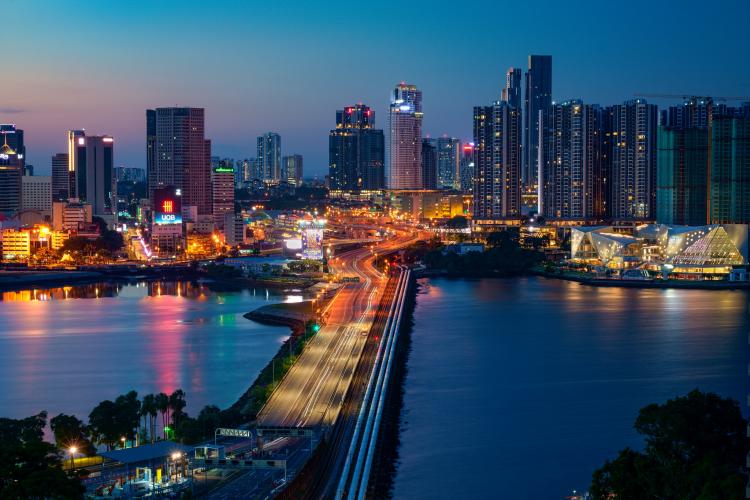COVID-19 and the effects on women involved in drug trafficking in Malaysia
Posted:
Time to read:
Inequity is the theme of the moment. As the world grapples with the effects of the global COVID-19 pandemic, we are bonded by our shared sense of insecurity, yet at a deeper level, the pandemic is exacerbating intersectional disadvantage. In the context of the drug trade in Southeast Asia, the long-term result of COVID-19 will likely be a disproportionate increase in the number of women sentenced to death for drug offences.
Drug trafficking and the death penalty in Malaysia
The vast majority of the 141 women on death row in Malaysia (86%) are foreign citizens, almost all of whom (95%) have been charged with drug trafficking. Most of these women were arrested at a Malaysian airport with illicit drugs concealed on or within their person or luggage. Only a small proportion of women were arrested outside of an airport.
These women face the death penalty. Despite the introduction of reforms to the mandatory death sentence for drug trafficking cases in Malaysia in 2017, in practice, capital punishment is a fairly certain outcome if convicted on these charges. During sentencing, there is little if no room for consideration of mitigating factors, including economic drivers that place women in situations whereby trafficking drugs is one of the few viable jobs with a worthwhile payoff.
The impact of economic insecurity on women trafficking drugs
As COVID-19 cases surged globally in mid-March 2020, I was in the midst of conducting my empirical fieldwork, researching the pathways to offending of women sentenced to death for drug trafficking in Malaysia. The emerging findings from my research interviews show that economic factors are major drivers behind women’s participation in the smuggling of drugs. However, the circumstances driving women to engage in the illicit economy are not only situations of abject poverty, but are often more nuanced. I heard time and time again that women engage in drug trafficking in order to ‘make quick money’. This is an indictment of the wider forces of neoliberalism and the postcolonial global economic order, leading to an increasingly precarious work force – the effects of which are felt most acutely by women, and by those in the Global South. According to the Asia Pacific Forum on Women, Law and Development, one in four employees in Malaysia are in precarious work, and this disproportionately affects women due to the burden of care and the gendered division of labour.

The empty Singapore-Malaysia causeway during the COVID-19 lockdown in March 2020
Photo credit: Lionel Lim via Flickr (Licensed under Creative Commons BY 2.0)
Travel restrictions are not slowing the flow of drugs
During the COVID era, travel restrictions present a barrier to the smuggling of drugs through airports. According to the UN Office on Drugs and Crime (UNODC), synthetic drugs are most often trafficked by air, unlike other drug types which are generally transported overland or by sea. Therefore, it is reasonable to presume that the flow of methamphetamines, and thereby the number of women engaged in airborne trafficking, to countries in Southeast Asia will be impacted by COVID.
However, there is evidence that drug trafficking networks have already adapted and prevailed. The UNODC reports that in the Golden Triangle region, a drug production hub where the borders of Thailand, Laos and Myanmar meet, the supply of drugs has continued to surge despite the pandemic, as indicated by the fact that the price of methamphetamine has remained stable. Other evidence of persistent drug trafficking comes from the Narcotics Crime Investigation Department in Malaysia, which reports that during the heart of the country’s ‘Movement Control Order’ lockdown (between 18 March-16 April 2020) as many as 3,923 people were detained for drug offences. Of this total, 208 were arrested for drug trafficking and RM7.5 million worth of drugs were seized. More recently in July 2020, Thai authorities intercepted a vehicle containing a shipment of 1.42 metric tons of crystal methamphetamine, worth approximately $9.1 million, headed to Malaysia.
So, while travel restrictions may temporarily reduce the number of airport arrests and resulting capital sentences during this pandemic era, this may be a short-term trend. In the long term, if economic austerity policies are adopted globally, personal financial insecurity will increase, and there will be a greater need for many women to turn to criminalised activities – such as drug trafficking – to account for the shortfall. As such, it is an important time to address the gender inequities and underlying drivers that result in women facing capital punishment.
Lucy Harry is a DPhil Candidate at the University of Oxford Centre for Criminology and Death Penalty Research Unit.
Keywords:
Share:
